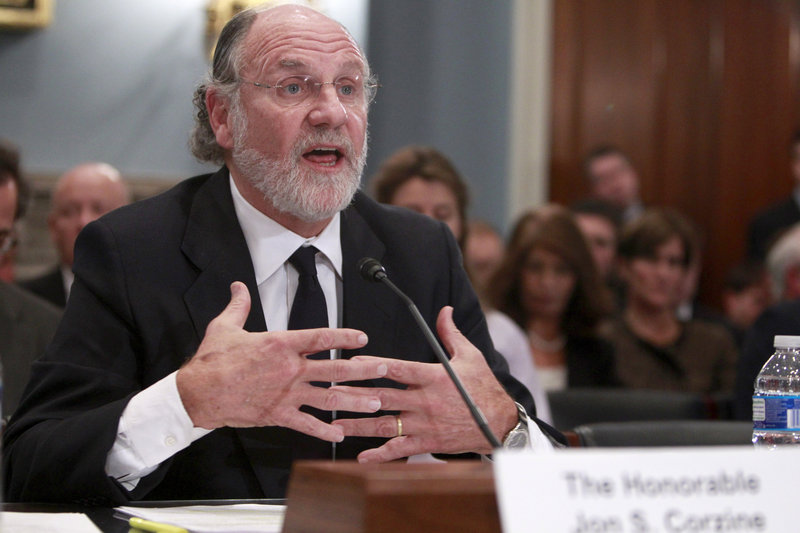WASHINGTON – Questioned by senators he once served with, Jon Corzine told a panel Tuesday that he never told anyone to “misuse” customer money that vanished when MF Global collapsed this fall.
An estimated $1.2 billion in client funds are missing. Senators demanded that Corzine and two other executives from the securities firm explain who authorized the transfer of money in the days before the firm became the eighth-largest bankruptcy in U.S. history.
“I never gave any instruction to anyone at MF Global to misuse customer funds,” Corzine testified at a hearing of the Senate Agriculture Committee.
Corzine, a Democratic former New Jersey senator and governor, resigned as CEO of the securities firm last month.
Bradley Abelow, the firm’s president and chief operating officer, and Henri Steenkamp, the chief financial officer, also tried at the hearing to distance themselves from any decision to transfer customers’ money.
Brokers are required to keep client money separate from company funds.
All three witnesses said they don’t know where the money is. Yet their phrasing varied in subtle ways that could have legal distinctions.
Corzine said he did not direct anyone to “misuse” clients’ money.
Abelow said he does not recall “any conversation about customer funds being used for anything other than their intended purpose.”
Steenkamp said he did not “authorize, approve or know of any transfers of customer funds” out of their accounts.
Depending on the circumstances, transferring money from customers’ accounts could violate securities laws and, in some cases, could amount to a crime. Federal authorities have begun criminal investigations. And regulators are looking into whether the firm broke securities rules.
“Funds don’t simply disappear,” said Kansas Sen. Pat Roberts, the committee’s top Republican. “Someone took action, whether legal or illegal, to move that money.”
Roberts said MF Global violated “a sacred rule of the futures industry,” under which customers’ money is segregated from the firm’s.
As the senators drilled into who might have authorized the transfer of funds, Corzine pointed to the role of the firm’s treasury operations department.
“The people who headed that were probably closest to the scene of the action,” he said. Roberts noted that the department ultimately reported to Abelow.
Copy the Story Link
Send questions/comments to the editors.



Success. Please wait for the page to reload. If the page does not reload within 5 seconds, please refresh the page.
Enter your email and password to access comments.
Hi, to comment on stories you must . This profile is in addition to your subscription and website login.
Already have a commenting profile? .
Invalid username/password.
Please check your email to confirm and complete your registration.
Only subscribers are eligible to post comments. Please subscribe or login first for digital access. Here’s why.
Use the form below to reset your password. When you've submitted your account email, we will send an email with a reset code.